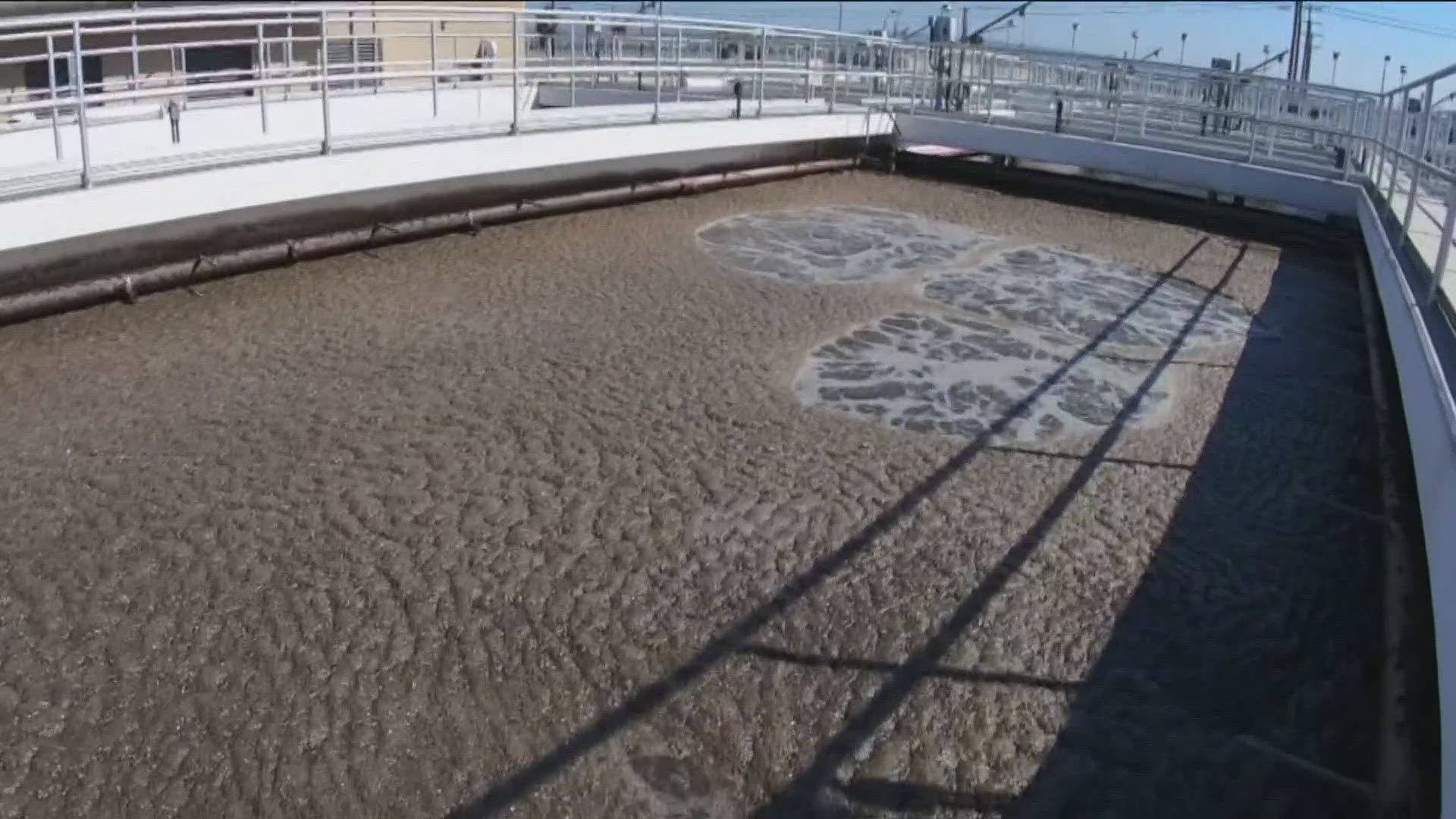SAN DIEGO — The binational agency operating the wastewater treatment plant near the U.S.-Mexico border missed a key deadline to bring the plant into compliance with federal standards.
The International Boundary and Water Commission is responsible for the South Bay plant that's supposed to make sure water in and around our border communities is clean and safe.
Right now, it's not.
The IBWC told the San Diego Regional Water Quality Control Board on Wednesday that it will not meet the August 15th deadline, leaving South Bay residents continuing to suffer with poor water quality and beaches contaminated with sewage.
Morgan Rogers is the area operations manager for the International Boundary and Water Commission.
“The reality is we just can't meet that deadline. We have technical problems here and unforeseen (issues) and sediment coming into the plant that gets into our equipment and puts us behind schedule. We're going as fast as we can," Rogers shared candidly.
"We have two problems,” Rogers started. “One is the plant and getting the plant under compliance. The other problem is the flow coming from Mexico. This is the summer, and we shouldn't have any flows in the river. Yet we have 45 million gallons a day of flow coming down the river which empties out into the beaches.”
Rogers says the flow from Mexico must be stopped by Mexican authorities.
"That is the source of the odors that everyone is experiencing in Imperial Beach, Chula Vista and beyond," Rogers said.
Right now, only one of the IBWC’s primary sedimentation tanks is working. The sedimentation tanks remove solids from wastewater. A second tank should be online, Thursday, August 15th Rogers adds.
"We have 5 tanks. Three are required at all times to be in operation. So we're looking at - once we get three online, we should see compliance," Rogers explained.
Rogers adds that compliance could be reached by October, if all goes well. But compliance won’t fix the air quality or smell issues Rogers said is being caused by the flow from Mexico.
"If Mexico doesn't do anything about it, what can we do to kind of better protect ourselves?” CBS 8 asked Rogers.
“That's a good question. I don't know,” Rogers admitted.
CBS 8 talked to The Coastal Environmental Rights Foundation and The San Diego Coastkeeper back in April when they filed a lawsuit against the federal government to get the IBWC in compliance.
It's the U.S. federal government's responsibility to make sure the IBWC plant has enough money to operate. However, Rogers shared that there's so much that needs to be fixed first.
“The plant and the IBWC has been neglected as far as funding for years. Between 2010 and 2020 we only spent 4 million dollars on this plant. We should be spending that every single year," Rogers informed CBS 8.
Paloma Aguirre, mayor of the City of Imperial Beach says it's time to enforce compliance through fines and other means.
"My hope is that the federal government takes this as a very clear sign that this isnt the status quo of bodies of water getting polluted. This is a life-threatening situation our communities have been harmed by for a very long time," Mayor Aguirre advised.
WATCH RELATED: CDC agrees to investigate health effects of Tijuana River sewage contamination

